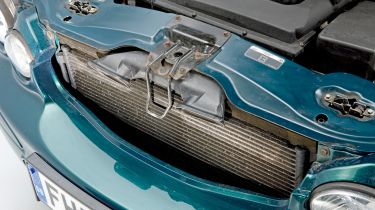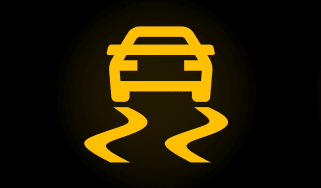What does a car radiator do and what can go wrong?
We explain how a car radiator works and what to do if it leaks

The majority of car owners spend very little time under the bonnet. When you do lift it to check on fluids, you’ll know how hot an engine can become after a run. This is because it’s essentially creating hundreds of miniature explosions per minute, which as you can expect, generates a lot of heat.
A car’s radiator is specifically designed to dissipate this heat and allow your engine to continue running smoothly at its optimum temperature. But how does a radiator work? How do you know if your radiator is leaking? And if it is losing water, how much does it cost to fix? Read on to find out.
How does a car radiator work?
Your car’s radiator is part of a larger system that works to keep your engine running as it should. In most modern cars, this system comprises a thermometer, a water pump, cooling fans and the radiator itself. The thermometer constantly assesses your engine’s temperature and indicates to the water pump when coolant fluid needs to be circulated through the engine. This is pumped via hoses into and through the engine, and then finally towards the radiator.
Although a car radiator’s purpose is quite different to those you may find around your home, the way it functions is in fact very similar. In principle, the radiator utilises a slatted design to maximise surface area; this is because the greater the surface area, the more heat that can be dissipated. Fluid passing through the radiator therefore loses its heat quickly, with the cooling fans that are usually mounted behind the radiator speeding up the process further. Once it’s reached a lower temperature, the coolant exits the radiator and heads back towards the thermometer, ready to begin the process again.
How can I tell if my car’s radiator is leaking?
Leaking is one of the most common problems you can face with a car radiator. Leaks can be caused by a multitude of reasons, including exposure to extremely cold weather, impacts from debris, a faulty radiator cap, worn water pumps and radiator hoses, and head gasket failure. Although it may seem a relatively minor issue, if a leaking radiator is left it can have disastrous repercussions for your engine. Drivers should keep an eye out for:
- Fluid underneath the car when it is stopped
- Low coolant level in the expansion tank
- Hissing sounds emanating from the radiator
- High engine temperature
- Rust around the radiator
- Engine warning lights on dashboard
How much does it cost to fix a car radiator leak?
Given there are several causes of radiator leaks, it is difficult to pinpoint exactly how much it will cost to rectify the issue. You can buy a new radiator cap for as little as £10, while a garage repair to your radiator hose can set you back about around £100-150.
Unfortunately, if cracks have developed in the radiator itself, it will need to be replaced. This will cost from around £250 on lower-end cars, rising to over £500 for more expensive and performance models.
For more minor cracks, there is always the option of applying some radiator leak sealant. This can be poured into the car’s cooling system and will fill in any small holes that may have formed. Bear in mind, however, that this is a temporary fix and that small cracks may eventually develop into much larger fissures.
We recommend taking your car to a trusted service centre to carry out the necessary repairs to avoid further issues; some may also throw in a one-year warranty for peace of mind.
Car technology made simple
- Car lights and headlights: complete guide
- Car cameras: how cameras are making cars safer
- Dash cams: what are they and how do they work?
- What is cruise control and adaptive cruise control?
- Electronic handbrakes and Auto-hold: a complete guide
- What is a car immobiliser and does my car have one?
- What is Alcantara?
- What is kerbweight?
- What is a space saver wheel?
- What is regenerative braking?
- What is gross vehicle weight?
- What is bluetooth?
- What are spark plugs and glow plugs?
- What are brake pads and discs?
- What is a supercharger?
- What is lumbar support?
- What is a car’s exhaust system and what can go wrong?
- What is air suspension, and how does it work?
- What are adaptive dampers, and how do they work?
- What is keyless entry and keyless start?
- eCall explained
- What is a head-up display?
- What is Waze?
- What is Mirrorlink?
- What is what3words?
Recommended

In-car safety assistance systems leaving drivers confused and dissatisfied

What is Android Auto? Apps, music and new gaming features
Most Popular
Tips & advice

Car dashboard warning lights: what does each symbol mean?

Electric car charging stations: public networks, charger types, apps and maps








